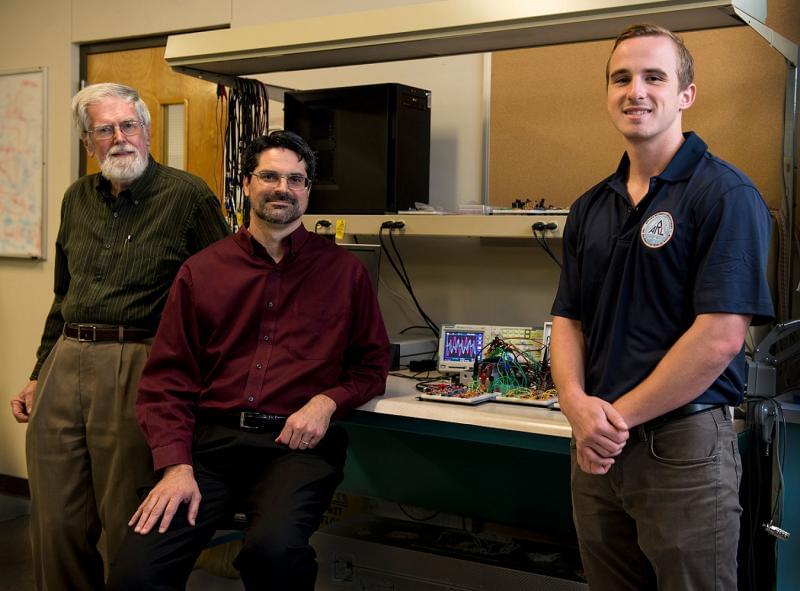Year 2015 face_with_colon_three
(Phys.org)—Quantum computers are inherently different from their classical counterparts because they involve quantum phenomena, such as superposition and entanglement, which do not exist in classical digital computers. But in a new paper, physicists have shown that a classical analog computer can be used to emulate a quantum computer, along with quantum superposition and entanglement, with the result that the fully classical system behaves like a true quantum computer.
Physicist Brian La Cour and electrical engineer Granville Ott at Applied Research Laboratories, The University of Texas at Austin (ARL: UT), have published a paper on the classical emulation of a quantum computer in a recent issue of The New Journal of Physics. Besides having fundamental interest, using classical systems to emulate quantum computers could have practical advantages, since such quantum emulation devices would be easier to build and more robust to decoherence compared with true quantum computers.
“We hope that this work removes some of the mystery and ‘weirdness’ associated with quantum computing by providing a concrete, classical analog,” La Cour told Phys.org. “The insights gained should help develop exciting new technology in both classical analog computing and true quantum computing.”









Comments are closed.